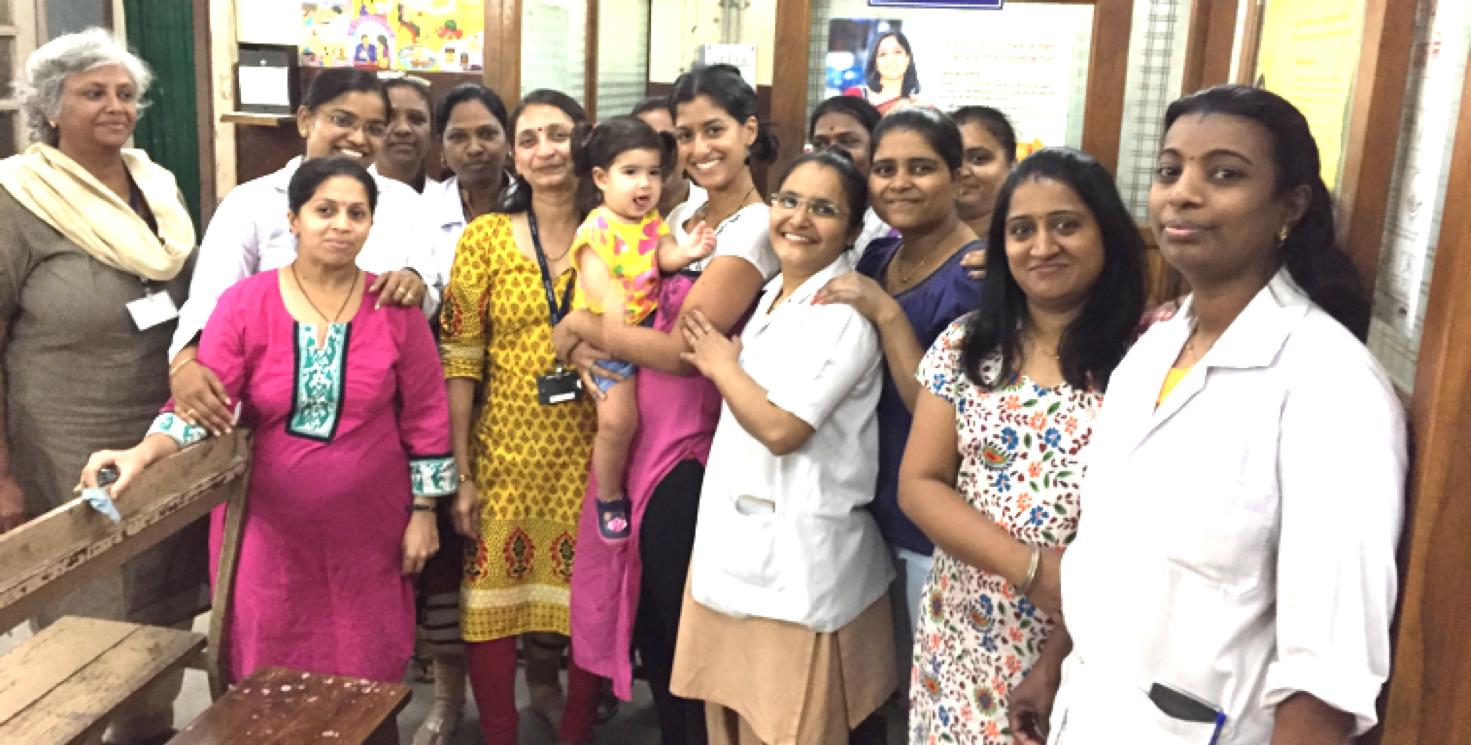
18 minute read
New Efforts to Tackle Tuberculosis
Continued
New in 2020
Advertisement
PARTHISA: Pregnancy Associated Immune Responses to TB and HIV in India and South Africa
Expanding on our growing portfolio of work on the immunology of pregnancy and tuberculosis and HIV, this study will look for immunologic signatures that can signal latent TB infection and active disease. We will compare these markers in both HIV positive and negative pregnant and post-partum women, and we will compare placental cells in pregnant women with no evidence of infection or diseases, active TB disease, and latent TB infection, in order to learn more about immunologic responses during pregnancy and suppression of tuberculosis. Study Team: Jyoti Mathad, Amita Gupta, Ramesh Bhosale, Shilpa Naik, Neetal Nevrekar, Vandana Kulkarni, Nishi Suryavanshi, Mallika Alexander, Neeta Pradhan, Neil Martinson
HATHI Trial: Reducing Alcohol Use among People with Tuberculosis and HIV in India
This 5-year study will enroll 450 patients, half with tuberculosis and half with HIV/TB coinfection, and will assess whether treatment that integrates cognitive behavioral therapy and motivational enhancement therapy is more effective in mitigating alcohol abuse and improving treatment outcomes. The study is being conducted at DY Patil Hospital and BJGMC in Pune. Study Team: Amita Gupta, Geetanjali Chander, Nishi Suryavanshi, Arjun Kakrani, Dr. Gaikwad, Jonathan Golub, David Dowdy, Prasad Bogam, Nikhil Gupte, Vidya Mave, Gauri Dhumal
CATALYST Trial: Studying Safer, Shorter Course, More Effective Treatments among Children with Drug-Resistant Tuberculosis
CATALYST is a multi-national trial being conducted in India, South Africa, and Philippines. The BJGMCJHU clinical research site Pune will enroll HIV+/- children under the age of 15 who have confirmed or diagnosed drug-resistant TB. The current standard treatment is lengthy (9-11 months) and has significant side effects, thus this study is assessing new formulations that are child-friendly. Study Team: Mandar Paradkar, Aarti Kinikar, Nishi Suryavanshi, Amita Gupta
Our research team in Pune, India, is among few groups worldwide to focus on the immunological changes associated with pregnancy and post-partum stages of life.
Tackling TB
Continued
New in 2020
RePORT: Nanopore Biosensor for Leveling MTB Antigens in Blood
It’s challenging to get useful sputum samples from TB patients, and current TB diagnostic tests lack sensitivity to other kinds of samples. Moreover, standard TB diagnostics involve mass-spectrometry, which requires expensive equipment. For this study, our team is validating a nanopore sequencing platform to look for two specific biomarkers that we previously identified to be associated with TB for a potential diagnostic test, and we are looking at the platform for its potential to monitor medication response. Nanopore sequencing is more cost effective approach for resource limited settings with high TB burden. Study Team: Tony Hu, Bob Bollinger, Amita Gupta, Nikhil Gupte, Mandar Paradkar, Sanjay Gaikwad, Vidya Mave, Vandana Kulkarni
Multicenter Study to Evaluation the Diagnostic Accuracy of a Stool Processing Kit Combined with Xpert MTB/RIF Ultra for Pediatric Diagnosis Using Microbiological Confirmation on Respiratory Samples as the Reference Standard
Most diagnostics tests for tuberculosis require sputum, and collecting quality samples from young children is not an easy undertaking for clinical staff. Our team is assessing the accuracy of a new diagnostic test for pediatric tuberculosis and drug-resistant TB that analyzes stool samples and is less invasive for diagnosing children. Study Team: Mandar Paradkar, Amita Gupta, Samyra Cox, Vandana Kulkarni, Nikhil Gupte
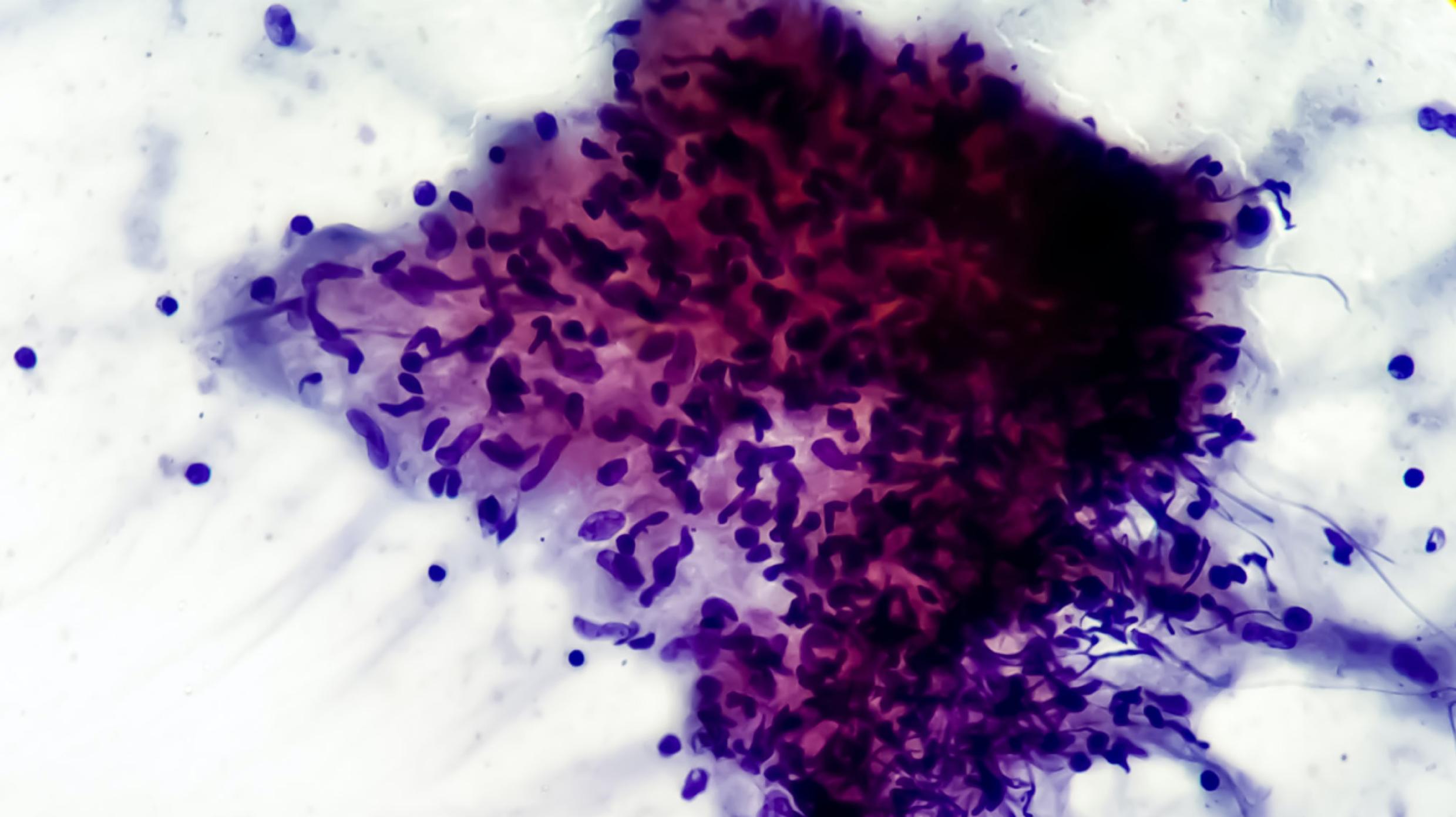
Continued
New in 2020

RePORT: Identification of Biomarkers that Can Predict Progression from Latent TB Infection to Active Tuberculosis Disease
The current tests for tuberculosis lack sensitivity needed to accurately detect infection that hasn’t yet progressed to active disease. Thus, there is a high rate of false-negative results, and people who have been exposed are not receiving the preventive care they need. We are assessing a proteomic platform that can simultaneously measure multiple biosignatures that point to TB infection in people who are contacts of confirmed TB patients. Study Team: Mandar Paradkar, Robert Bollinger, Amita Gupta, Vidya Mave, Vandana Kulkarni, Nikhil Gupte, Shri Vijay Balayogendra Shivakumar, Akshay Gupte
RePORT: Pharmacokinetic Assessment of MDR-TB Drugs in the Treatment of TB Meningitis
This study is being conducted in South Africa, China, and India. Our RePORT teams at BJGMC and PD Hinduja Hospital and Medical Research Center are measuring TB drug concentrations in stored plasma and cerebral-spinal fluid samples to develop a model that describes second-line drug disposition and penetration, and that can identify biomarkers of greater survival for tuberculosis-meningitis co-infection. Study Team: Jeff Tornheim, Kelly Dooley, Amita Gupta, Camilla Rodriguez, Sandesh Patil, Prena Chawla, Neeta Pradhan, Vidya Mave, Shri Vijay Bala Yogendra Shivakumar
Dr. Vidya Mave
Samyra Cox
Dr. Akshay Gupte
Dr. Nishi Suryavanshi Dr. Jonathan Golub
Dr. Sachin Atre
Dr. Nikhil Gupte
Dr. Amita Gupta
Continued
New in 2020
TB Aftermath Aims to Identify Effective Approach for Recovery Follow-Up
In India, tuberculosis disease relapse following treatment is common. In fact, the rate of TB among patients who have already recovered from the disease is 60 times the national average for new cases. Following up with recovered patients and their household contacts for TB is a strategy proposed by India’s National Tuberculosis Elimination Program to aid in finding active cases in the community, but more evidence is needed to guide implementation. Thus, for this 5-year trial, the Indo-JHU research partnership will assess two methods of active TB case finding to determine which approach is most effective, has the best potential for scale-up, and demonstrates the most cost effective return on investment.
Drs. Vidya Mave and Jonathan Golub are leading the JHU effort, and the study team includes Sachin Atre, Abhay Kadam, Samyra Cox, Akshay Gupte, Nikhil Gupte, Nishi Suryavanshi, and Amita Gupta. The study is being conducted in partnership with colleagues at DY Patil Medical College and Research Centre in Pune, and it will be run in four Pune TB Units of India’s National Tuberculosis Elimination Program: Sahakarnagar, YCM, Khed, and Paud. Case findings will be conducted either through household visits or through telephone screenings, and participants reporting symptoms will be tested and referred into care, as necessary. Because some health factors—including diabetes, and alcohol and tobacco use—correlate strongly with TB relapse, participants will be screened for tobacco and alcohol use and will receive a rapid blood sugar diagnostic test.
TB is a devastating disease that can cause debilitating and life-long damage to the lungs. This study will help identify the most effective strategy for India’s national TB program to prevent recurrence and community spread.
New in 2020
Tackling TB Continued
Vaccine Trial: A Multicenter Phase II/III Double-blind, Randomized, Placebo Controlled Study to Evaluate the Efficacy and Safety of VPM1002 in the Prevention of Tuberculosis (TB) Recurrence in Pulmonary TB Patients after Successful TB Treatment in India
Although there is a vaccine for TB that’s generally given at birth in high burden countries, it has been in use for 100 years, and it’s not terribly effective. To meet the need, Serum Institute of India Pvt Ltd developed a new recombinant vaccine candidate for preventing recurrence of TB in recovered patients. Preclinical data and previous clinical studies of this vaccine show promising results, and JHU-India clinical research partnership is now conducting a Phase II/III trial to determine the vaccine’s safety and efficacy.
Under the leadership of Dr. Vidya Mave, 2,000 people who have recovered from TB following treatment will be enrolled in the study in Pune, India. Participants have several scheduled follow up visits, where samples are taken to gauge immune response and to closely monitor for any side effects. The data will then be analyzed for efficacy and strains associated with recurrence, and immunological differences will be compared.
A new, more effective TB vaccine would save countless lives globally each year. We look forward to reporting the findings of this important research.
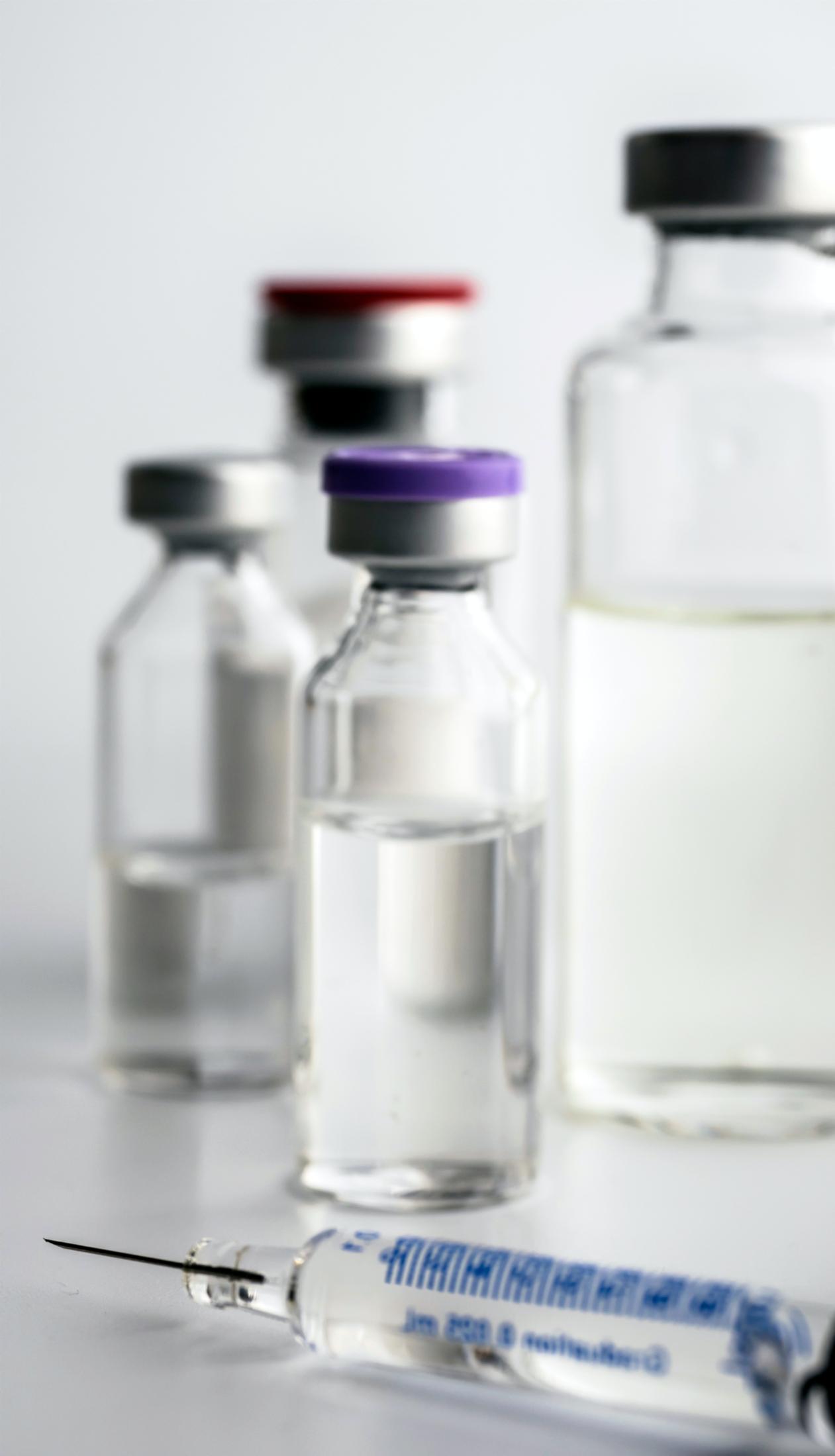
147 participants

were enrolled in 2 tuberculosis therapy trials to shorten treatment for children & adults
Shortening the Course
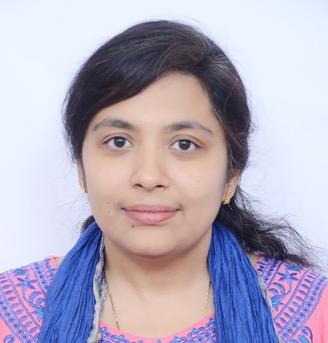
Dr. Vidya Mave
New in 2020: Findings from 2 TB Trials
During the 2020 Union Conference on Lung Health, the World Health Organization (WHO) and the U.S. Centers for Disease Control and Prevention announced important findings about two trials conducted at the JHU-India Clinical Research that shorten the length of treatment. These findings will change the WHO’s current treatment guidelines.
SHINE Trial Offers Shorter Course TB Treatment in Children
Led by Drs. Vidya Mave and Aarti Kinikar, the Shortened Treatment for Minimal Tuberculosis in Children (SHINE) Trial compared a 4-month drug combination to the current standard 6-month treatment for children with drug-susceptible TB. The clinical trial site enrolled 86 participants and found that the shortened course offered the same results with no difference in adverse events. Shortening the course will help with medication adherence, as TB therapy is expensive, requires a burdensome number of pills, and is associated with drug toxicity.
Dr. Mave weighed in on the team’s findings: “India assumes the world’s largest burden of tuberculosis, and the treatment is prolonged and difficult—particularly for children. Our team is proud to have contributed to findings that shorten the length of treatment, and we are grateful to the families who participated in this important effort.”
The study team included Drs. Priyanka Richur and Mandar Paradkar, and Savita Kanade, Sadaf Inamdar, and Aparna Nijampurkar.
Study 31/A5349: Four Month Course of Daily TB Treatment Is as Effective as 6-Months in Adults
In another important finding, the CDC announced the results of a Phase 3 trial that found that a daily regimen of a drug combination administered to adults over 4-months is as effective as the current 6-month standard of care. And, with no difference in adverse events, the shortened treatment is just as safe.
Study 31/A5349 enrolled more than 2,500 participants from clinical sites in 13 countries, including the JHU-India Clinical Research Site in Pune, India, where 61 participants were enrolled. The study represents the largest drugsusceptible TB treatment trial ever conducted by CDC or NIAID.
Study team members in this landmark study included Dr. Vidya Mave, Dr. Sanjay Gaikwad, Dr. Nishi Suryavanshi, Dr. Neetal Nevrekar, Dr. Sandesh Patil, Vandana Kulkarni, Neeta Pradhan, Savita Kanade, Sadaf Inamdar, Sameer Khan, and Smita Nimkar.
Tackling TB
Continued
Tuberculosis affects women more severely in their reproductive years than during any other time of life. TB is a known cause of infertility, menstrual irregularity, and pregnancy loss, and undernutrition places women at increased risk of death and disease relapse. In India, stigma and discrimination, depression, and poverty keep women from accessing lifesaving healthcare.
In an effort to promote health and wellness among multi-drug resistant TB survivors, the team at the BJGMC research site in Pune convened a woman’s health seminar that offered sessions on reproductive health, mental health, and nutrition, and opportunities for attendees interact and share their experiences. Convened in December by Dr. Nishi Suryavanshi, Savita Kanade, and colleagues, with support from the Arun and Elisabeth Shenoy Foundation, 25 adolescent and young women MDR-TB survivors and their mothers attended this community seminar.
Reproductive Health Session
Following an overview and ice-breaker activity, Dr. Neetal Nevrekar, a gynecologist on the Indo-JHU research team, presented the first session on reproductive health. She provided information about menstruation and cycle, and symptoms that are associated with a need for health consultation such as heavy bleeding, infection, and irregularity. Dr. Nevrekar reviewed good practices for vaginal hygiene, as well as issues pertaining to ovulation, Polycystic Ovary Syndrome, family planning, pregnancy care, reproductive health in the context of tuberculosis, and the importance of social and community health as well as physical and psychological health. Participants were very engaged in the question and answer session, seeking information about missed periods, optimal cycle duration, premenstrual syndrome, stress, illness, weight, when to seek healthcare, and resuming sexual activity after completing TB treatment.
Mental Health Session
The session on mental health issues was presented by guest speakers, Dr. Sneha Karmani, Consultant Psychiatrist, from Aditya Birla Memorial Hospital and Manisha Wahi, Clinical Psychologist, from Dr. DY Patil University. The session focused on dealing with stress and the importance of mental health to physical health and wellbeing. Issues addressed included why and when to seek mental health care, medications that can help with symptoms of anxiety and depression, how to discuss mental health with family and friends, and how physical exercise plays a role in mental health. Some participants shared emotional experiences of accepting TB disease, the burden of taking 10-12 tablets per day, coping with injection pain, medication side effects, stigma, and the mental stress associated with the diagnosis of MDR-TB.
New in 2020
Women’s Health Education Seminar Convened for Multi-drug Resistant TB Survivors in Pune, India

Dr. Nishi Suryavanshi
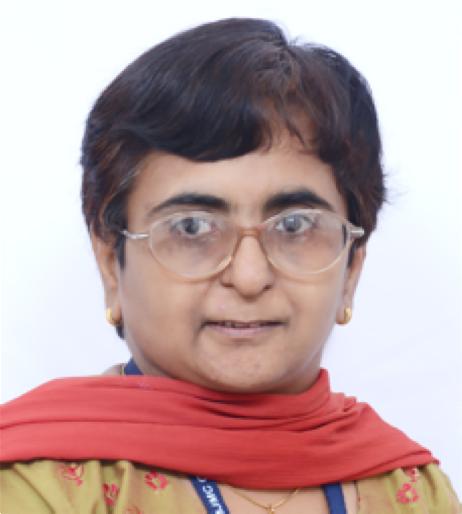
Savita Kanade
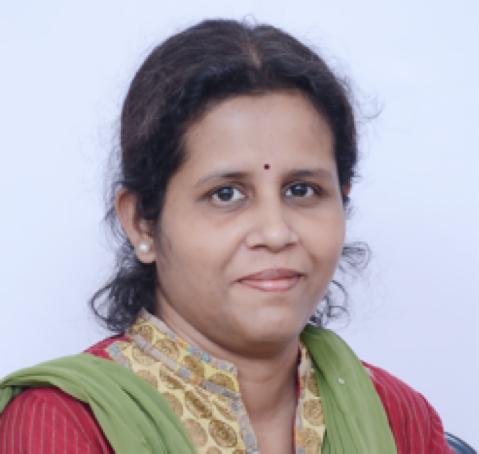
Dr. Neetal Nevrekar
Continued
Many expressed a need for counselling and mental health services in the Government TB programme. Participants also shared that family counselling services (particularly with in-laws) in the Government TB programme could help destigmatize TB and help family members understand and be supportive during treatment. Citing a need for peer support, a few participants offered to work as peer counsellors with the site.
Nutrition Session
The final session of the day was presented by Dr. Pooja Paur, Dietician at “Just for Hearts” Healthcare Institute, who addressed the components of a healthy diet. Specifically, she discussed the benefits of protein, iron, calcium, and B12 and the foods that wholesome meals should include. Dr. Paur also emphasized the importance of fruits and vegetables and the benefits that healthy foods add to TB therapy.
Following the educational sessions, a lunch was convened during which participants shared their thanks for the session and for the support that they had received from the staff during India’s national COVID lockdown. Site Community and Outreach Coordinator Savita Kanade conducted an empowerment exercise, and attendees received gifts for their participation. Closing out the day, Site Counsellors Prasanna Sahoo and Meena Chivate gave a vote of thanks.
“Community education seminars are an important part of our work,” notes Dr. Suryavanshi. “We strive to provide opportunities for people to feel less alone, to feel acknowledged, and to be empowered as a partner in treating disease and overall health and well-being.”
This educational programming was supported through the generosity of the Arun and Elisabeth Shenoy Foundation
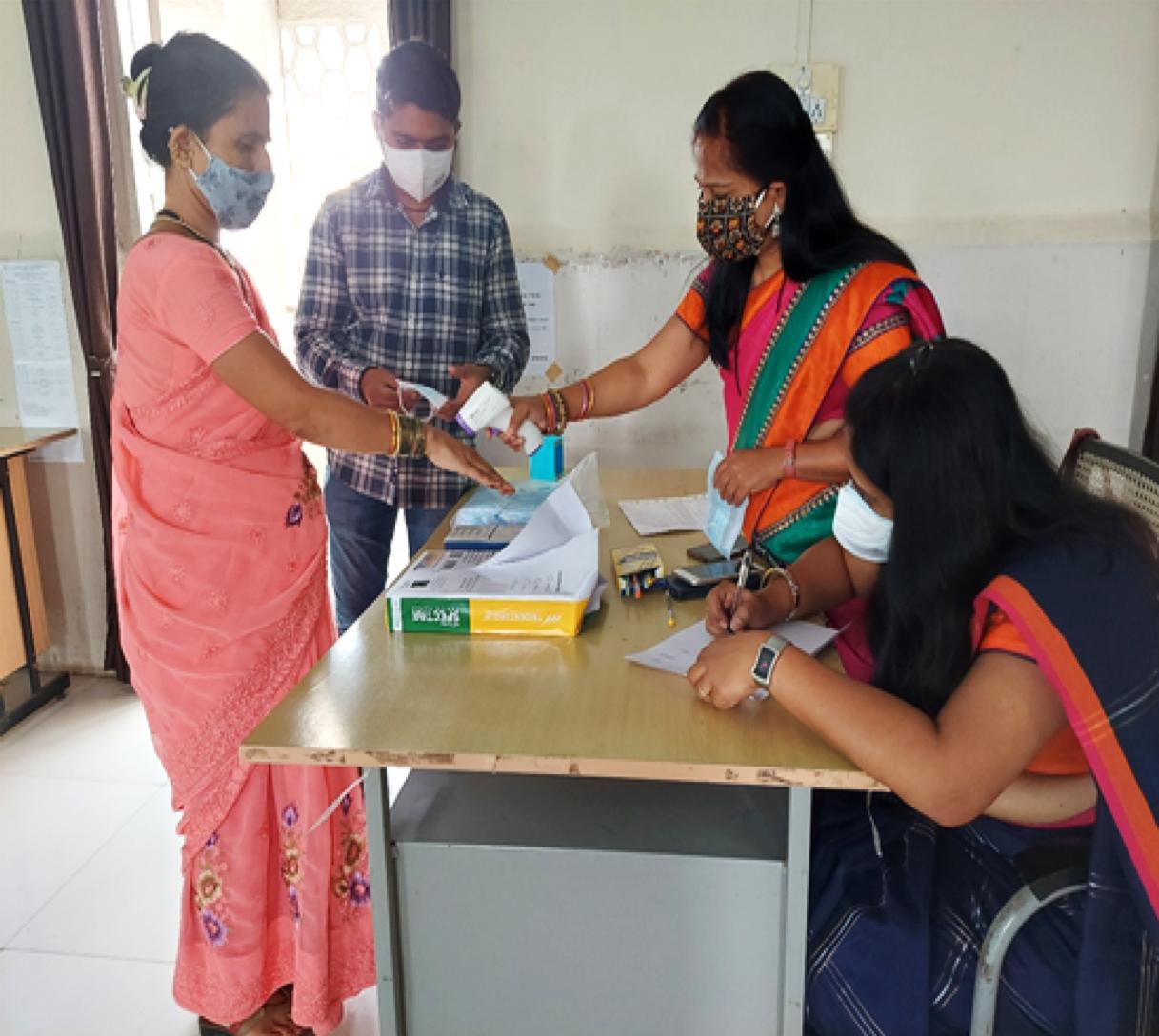
Advancing the Science Behind HIV Care
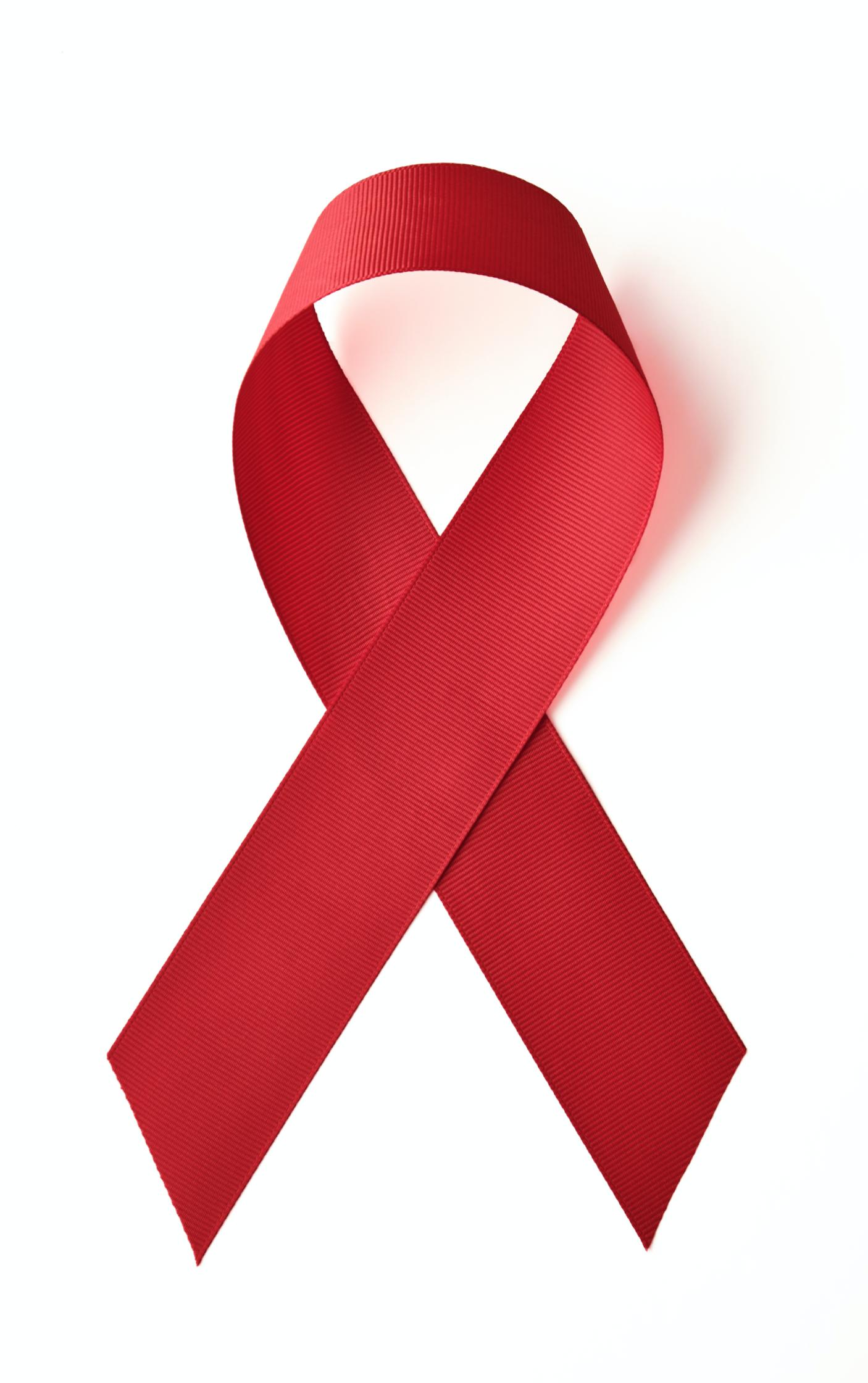
Network Trial Impact: Select Findings
PROMISE: Continuing antiretroviral therapy after delivery significantly reduces adverse events for postpartum women
REPRIEVE: A daily statin drug can help prevent major adverse cardiovascular events in people living with HIV
MULTI-OCTAVE: Targeted genotyping can help identify appropriate third-line antiretroviral therapy among patients who have drug-resistant HIV TB APPRISE: The drug commonly used to prevent TB in HIV+ pregnant women is associated with a higher rate of adverse pregnancy events BRIEF TB: A shortened one-month course of a new combination therapy to prevent TB in HIV+ patients is just as effective as 9-months of the standard therapy REMEMBER: A drug combination commonly used to prevent TB in people with advanced HIV/AIDS offers no benefit over using just one drug, and the one drug regimen may actually be safer
Continuing our decades of work on HIV, the JHU-India research partnership was awarded a 7-year grant from the NIH to conduct research in India under two of the premier international HIV clinical trials networks: the Adult Clinical Trials Group (ACTG) and International Maternal, Pediatric, Adolescent Clinical Trials (IMPAACT).
This grant is the third NIH-funded HIV Clinical Trial Unit under which our team has conducted research. Co-led by Dr. Amita Gupta, the Johns Hopkins-India-Baltimore Clinical Trials Unit (JHUBI-CTU) is a partnership comprising trial sites in Baltimore and Pune. The research evaluates the safety and efficacy of new therapies for HIV and other diseases, including TB, that complicate HIV treatment, and/or that are associated with more severe disease. Since 2004, the India clinical trial site at BJGMC in Pune has participated in 24 multinational network trials, providing important contributions to HIV and TB clinical science and improvements in care.
This decades-long partnership is one of few internationally that focuses on HIV in pregnant and postpartum women. The unique physiological changes that occur during this time are not well characterized, and there is little data about the safety and efficacy of standard treatments that are routinely administered to HIV+ pregnant women. Our research advances safe and effective HIV care for pregnant women and infants.
Our team members serve on international scientific committees that set priorities for research, and they lead the design and implementation of large multinational trials. The Clinical Trial Site at BJGMC has participated in several landmark trials that changed global standards for patient care. The renewal of this funding allows important HIV research to continue and is a testament to the impact of our work is having for improved HIV care.
JHMI Press Release: Grants, Management Roles Keep Johns Hopkins A Leader In HIV/AIDS Clinical Trial Research. 2020-12-08 https://bit.ly/3kwItyo
New in 2020: Sentinel Research Network of IeDEA: A Prospective Cohort among People Living with HIV
The JHU-India research team has embarked on a large effort to capture and analyze data among people living with HIV in low and middle income countries (LMICs) as part of our collaboration with the International epidemiology Databases to Evaluate AIDS consortium. The consortium is establishing a Sentinel Research Network that will implement studies focused on cardiovascular health, mental health and substance abuse, and liver disease. There currently is very limited data from LMICs about HIV and noncommunicable disease comorbidities and mental health problems, and what the impact is on access to HIV treatment and disease outcomes. As a participating IeDEA site, JHU-India research partnership in Pune will collect longitudinal clinical and mental health data for a shared international repository that can be tapped for studies on cardiovascular risk factors and enrollment in HIV care, prevalence of substance abuse and mental health issues and their association with treatment outcomes, and prevalence of liver diseases and what the specific causes are. Study Team: Dr. Vidya Mave, Smita Nimkar
New in 2020: Prevalence of Risk Factors for Lung Cancer and Barriers for Tobacco Cessation among People Living with HIV
Lung cancer is among the leading causes of cancer deaths in people living with HIV, who develop lung cancer at an earlier age and who, evidence suggests, develop the disease after lower exposures than the general population. Although there are higher rates of smoking among people with HIV, there are other factors, like immunosuppression and inflammation, that could contribute. With the world’s third largest HIV+ population, India is acutely affected. This study has several aims: (1) To assess the prevalence of lung cancer risk factors among people with HIV, including smoking and use of smokeless tobacco, TB, COPD, and pneumonia; (2) To characterize use of tobacco products, assess attitudes, behaviors and barriers to quitting, and identify preferred cessation strategies; and (3) To assess whether lung screenings can motivate HIV patients to quit. Study Team: Dr. Vidya Mave, Dr. Jonathan Golub, Dr. Jessica Elf, Dr. Akshay Gupte, Dr. Nishi Suryavanshi, Smita Nimkar, Dr. Gauri Dhumal, Ivan Marbaniang



Dr. Maunank Shah
New Strategies in Clinical Guideline Delivery: Randomized trial of online, interactive decisionsupport versus guidelines for HIV treatment selection by trainees Ramirez JA, Maddali MV, Nematollahi S, Li JZ, Shah M. Clin Infect Dis. 2020 Mar 25:ciaa299. doi: 10.1093/cid/ciaa299. Epub ahead of print. PMID: 32211758.
News Article: HIV-ASSIST Uses Algorithms in Appropriate ARTRegimen Selection. Contagion Live. March 30, 2020. https://bit.ly/3c59pRS
www.hivassist.com/
Improving Therapy Selection for HIV Care
HIV is now a chronic disease that’s increasingly managed by primary care providers. Yet surveys of primary care programs suggest that less than half offer dedicated training in HIV medicine. With more than 30 FDA-approved antiretroviral (ARV) drugs from 7 different classes, clinicians are faced with a formidable number of possible antiretroviral therapy (ART) combinations.
Selecting the best ART regimen for individual patients can be time consuming and intimidating. There are complex and cascading factors to consider when making ARV selections. Drug interactions and side effects, comorbidities, resistance mutations, viral load, dosing frequency, patient adherence to treatment, and other issues present complex considerations for care providers.
Developed by Dr. Maunank Shah and colleagues, HIVASSIST is an online clinical decision support tool that guides primary care providers in making appropriate ART selections. The tool integrates the latest HIV clinical care guidelines and considers individual patient factors. Care providers enter patient-specific clinical information such as comorbidities, comedications, CD4 cell count, and HIV treatment history, as well as virus-specific attributes, including genotype, HIV viral load, and tropism. HIVASSIST then ranks all possible drug combinations. The lower the weighted score, the more likely the combination is to both suppress the virus and be tolerable for the patient to take. The tool saves providers time, and it ensures that appropriate therapies are selected for individual patients.
The tool was validated in a randomized study. Trainees who used HIV-ASSIST were found to be significantly more likely to select appropriate antiretroviral combinations than those who used care guidelines alone.
In 2020, HIV-ASSIST became a registered non-profit company, HIV ASSIST, Inc., and Dr. Shah launched a continuing medical education series through Clinical Care Options.





